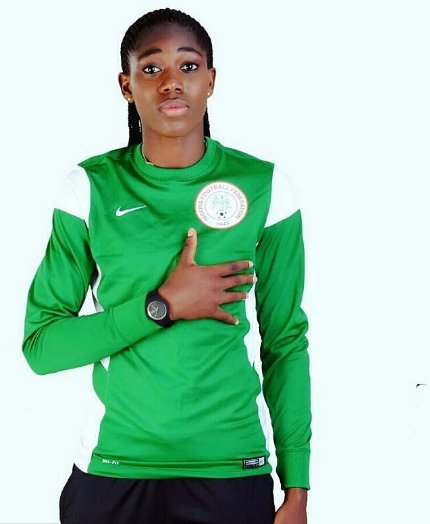The release, few weeks ago, of fixtures for the WAFU Women competition reminded us that there is still a Nigerian women national team. In the midst of celebrating the Super Eagles’ qualification for the 2018 World Cup, what stuck out like a sour thumb was the silence surrounding the women.
It was so quiet that a claim that a Nigerian women national team did not exist would have not been questioned. That the NFF President, Amaju Pinnick, would belatedly boast of a plan to schedule an international friendly more than one year after the women national team Falcons won the African championship seemed an afterthought.
Appointing a national team coach for Falcons should be lauded but it must be recalled that it happened after a public hiccup. These acts are like that of a man presenting a birthday present to his wife months after the birthday has passed.
The record of the Falcons now reads “2017 = no competition, no games.” That is now clearly the legacy of the current NFF leadership. It cannot be wished away and neither can it be erased. What is done, is done. It is a sad tale. What should bother any neutral observer is that the Falcons have been treated like pariah, forgotten and wished away.
Yet, the Falcons have brought perhaps the most continental glory to Nigeria. It will take years for the Super Eagles to dream of matching what the Falcons have achieved. No national team, men or women, has been as dominant as the Falcons. They have owned the title of African champions for as long as the title has existed except on a couple occasions. Even in the year when the NFF forgot the Falcons, it was a Falcon that saved the faces of NFF officials at the continental awards held in Ghana barely a few weeks ago.
The award as the best woman player in Africa belonged to Asisat Oshoala, a Falcon and NFF officials scampered for photo shots with her in Ghana. Besides that, Nigeria and her footballers were hardly recognized at the ceremony in spite of the Super Eagles qualifying for the World Cup.
The Falcons will, this month, represent the country in Abidjan at the WAFU Cup for women. If they win as they always do it will be another accomplishment ahead of the men squad but yet the disparity in the treatment of the women and men team leaves much to be desired. It harkens back to 1950 when then NFA, albeit under colonial rule, outrightly banned women now by the NFF is a semblance of 1950 without the official announcement of a ban.
But one day the goose will no longer lay the golden eggs. That day is coming and with the NFF treatment of the team, the coming of that day has been quickened. Already, Nigeria’s U17 team “Flamingos” has shown the signs of struggle. Its draws in competitive games against Ethiopia cannot be blamed on the players or coaches but also on the preparation support from the Federation.
Then neither can you simply blame coaches for their most recent home draw against Cameroon in Benin. It will be, as is usual, after the arrival of that day of reckoning that Nigerians will lament about the good old days when Nigeria dominated women football.
Few will remember that NFF’s activities today and its attitude towards Women football is the harbinger of that day. You reap what you sow, as the saying goes. Do not shed tears when it is time for harvest. Enough said for the wise.









